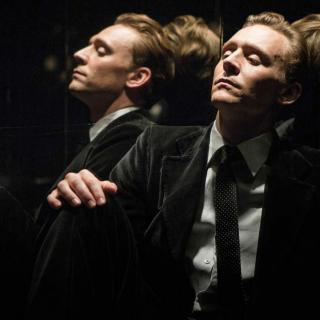
介绍:
继续放出样本~
音频源:torrilla汤上引的soundcloud源:https://soundcloud.com/daisyjj/audio-extract-of-high-rise-by-jg-ballard
题图源:豆瓣high-rise电影条目剧照(Torrilla上传)
文本:
第一章前半部分:
Later, as he sat on his balcony eating the dog, Dr Robert Laing reflected on the unusual events that had taken place within this huge apartment building during the previous three months.
Now that everything had returned to normal, he was surprised that there had been no obvious beginning, no point beyond which their lives had moved into a clearly more sinister dimension.
With its forty floors and thousand apartments, its supermarket and swimming-pools, bank and junior school -- all in effect abandoned in the sky -- the high-rise offered more than enough opportunities for violence and confrontation. Certainly his own studio apartment on the 25th floor was the last place Laing would have chosen as an early skirmish-ground. This over-priced cell, slotted almost at random into the cliff face of the apartment building, he had bought after his divorce specifically for its peace, quiet and anonymity. Curiously enough, despite all Laing&`&s efforts to detach himself from his two thousand neighbours and the regime of trivial disputes and irritations that provided their only corporate life, it was here if anywhere that the first significant event had taken place -- on this balcony where he now squatted beside a fire of telephone directories, eating the roast hind-quarter of the alsatian before setting off to his lecture at the medical school.
While preparing breakfast soon after eleven o&`&clock one Saturday morning three months earlier, Dr Laing was startled by an explosion on the balcony outside his living-room. A bottle of sparkling wine had fallen from a floor fifty feet above, ricocheted off an awning as it hurtled downwards, and burst across the tiled balcony floor.
The living-room carpet was speckled with foam and broken glass. Laing stood in his bare feet among the sharp fragments, watching the agitated wine seethe across the cracked tiles. High above him, on the 31st floor, a party was in progress. He could hear the sounds of deliberately over-animated chatter, the aggressive blare of a record-player. Presumably the bottle had been knocked over the rail by a boisterous guest. Needless to say, no one at the party was in the least concerned about the ultimate destination of this missile -- but as Laing had already discovered, people in high-rises tended not to care about tenants more than two floors below them.
Trying to identify the apartment, Laing stepped across the spreading pool of cold froth.Sitting there, he might easily have found himself with the longest hangover in the world. He leaned out over the rail and peered up at the face of the building, carefully counting the balconies. As usual, though, the dimensions of the forty-storey block made his head reel. Lowering his eyes to the tiled floor, he steadied himself against the door pillar. The immense volume of open space that separated the building from the neighbouring high-rise a quarter of a mile away unsettled his sense of balance. At times he felt that he was living in the gondola of a ferris wheel permanently suspended three hundred feet above the ground.
Nonetheless, Laing was still exhilarated by the high-rise, one of five identical units in the development project and the first to be completed and occupied. Together they were set in a mile-square area of abandoned dockland and warehousing along the north bank of the river. The five high-rises stood on the eastern perimeter of the project, looking out across an ornamental lake -- at present an empty concrete basin surrounded by parking-lots and construction equipment. On the opposite shore stood the recently completed concert-hall, with Laing&`&s medical school and the new television studios on either side. The massive scale of the glass and concrete architecture, and its striking situation on a bend of the river, sharply separated the development project from the run-down areas around it, decaying nineteenth-century terraced houses and empty factories already zoned for reclamation.
For all the proximity of the City two miles away to the west along the river, the office buildings of central London belonged to a different world, in time as well as space. Their glass curtain-walling and telecommunication aerials were obscured by the traffic smog, blurring Laing&`&s memories of the past. Six months earlier, when he had sold the lease of his Chelsea house and moved to the security of the high-rise, he had travelled forward fifty years in time, away from crowded streets, traffic hold-ups, rush-hour journeys on the Underground to student supervisions in a shared office in the old teaching hospital.
Here, on the other hand, the dimensions of his life were space, light and the pleasures of a subtle kind of anonymity. The drive to the physiology department of the medical school took him five minutes, and apart from this single excursion Laing&`&s life in the high-rise was as selfcontained as the building itself. In effect, the apartment block was a small vertical city, its two thousand inhabitants boxed up into the sky. The tenants corporately owned the building, which they administered themselves through a resident manager and his staff.
For all its size, the high-rise contained an impressive range of services. The entire 10th floor was given over to a wide concourse, as large as an aircraft carrier&`&s flight-deck, which contained a supermarket, bank and hairdressing salon, a swimming-pool and gymnasium, a wellstocked liquor store and a junior school for the few young children in the block. High above Laing, on the 35th floor, was a second, smaller swimming-pool, a sauna and a restaurant.
大家还在听

